This is AI generated summarization, which may have errors. For context, always refer to the full article.
Aruze's Batangas plant supplies almost 10% of slot machines worldwide
MANILA, Philippines – The bright lights and vast amounts of money laid down in Macau and Las Vegas have always been linked with the heady cocktail of the fast, high stakes lifestyle, constantly attracting those who wish to try their luck.
The Philippines plays a part in this, as the country contributes directly to one of the backbones of the gaming industry – the slot machine.
In Sto Tomas, Batangas, a 650,000-square meter facility churns out about 10% of the slot machines that people from all over the world flock to.
The factory is operated by Aruze G.A. Philippines Branch (Aruze), part of gambling magnate Kazuo Okada’s vast empire which includes Universal Entertainment Corporation (UEC) and its Philippine subsidiary, Tiger Resorts Leisure and Entertainment Incorporated (Tiger Resorts).
Okada, who plans to open up the 4th casino to rise in Manila’s Entertainment City next year, started it all by repairing jukeboxes and leasing them out in 1969.
This was soon followed by the manufacturing and selling of pachinko machines and eventually slot machines, the beginning of Aruze.
The firm now concentrates on manufacturing slot machines and electronic gaming table and distributes them to casinos worldwide.
Although it is owned by Okada, the firm is not connected to UEC and it sells slot machines to other casinos as well, company officials pointed out.
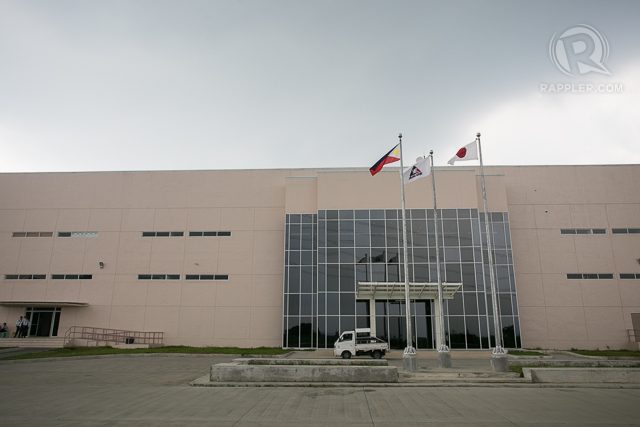
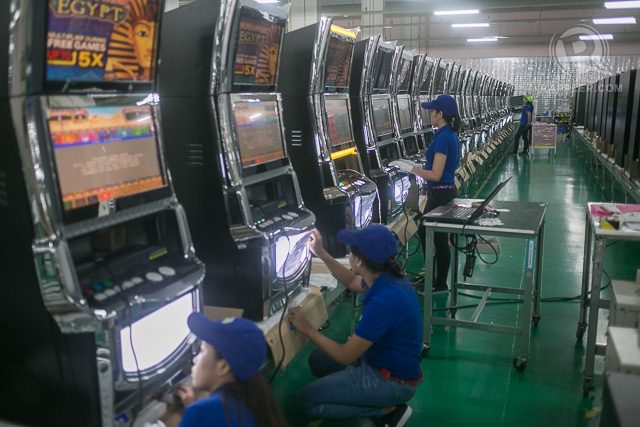
Software-based
Aruze Group Chief Executive Officer Takahiro Usui describes Okada as “a genius” who revolutionized slot machines by adding computerized software to its mechanical components.
Usui explained that previously, slot machines were purely mechanical until Okada combined this with software that allows for pre-determined winning results.
This is much more secure and reliable as slight mechanical faults do not result in payouts, and it is also much harder to cheat, he said.
It allows for flexibility. Since the result is pre-determined, the display can consistently produce combinations that are very close to winning ones, creating “more excitement for players,” he added.
Okada also added facets of Japanese culture, such as the blazing lights of pachinko machines to the slot machines in order to create a unique identity.
“It’s this kind of innovation, started by Mr Okada that runs in the DNA of the company. Without him the company wouldn’t survive,” Usui said.
Based on this innovation, Aruze has grown to supply almost 10% of the slot machines worldwide, and 15% to 20% in Asia.
In 2014, it booked a revenue of $100 million (P4.5 billion) and is targeting at least a 20% increase this year, for a projected revenue of $150 million (P6.8 billion), Usui said.
The company has supplied about 1.5 million slot machines to casinos worldwide, all made in its Batangas factory.
From the Philippines
Aruze’s original manufacturing base was in Japan, Usui shared, but it decided to move its manufacturing base to the Philippines in 2009.
Starting out originally in Laguna, the firm then invested $35 million (P1.5 billion) to build a 65,000 sqm facility in Batangas, its only manufacturing plant in the world.
“We produce all our products here in Batangas and send them to Macau, Las Vegas, all over Europe, and Asia, Sydney, and Johannesburg. When you see our machines there, it all came from this plant,” Usui shared during a tour of the facility on July 22.
Last year, 4,500 units were exported from the plant. Usui added that shipment volume has already expanded by 160% year-on-year as of June 2015.
About 99% of the facility’s 400 employees are Filipino, including a 100-member Filipino research and development (R&D) team in Batangas to complement its 130-member R&D team in Tokyo, Japan.
All the software engineering and graphic work is handled by the Philippine team, while the hardware and concept design is done by the Tokyo team, Usui said.
He added that the firm plans to expand this from 600 to 700, as the facility can accommodate that number, with emphasis placed on expanding the R&D team.
“One of the biggest considerations for investing in the Philippines is the people. Moving our production here allows to produce these machines more efficiently,” Usui said.
The country’s young and educated demographic was a particular consideration as it is easier to hire good talent compared to Japan, Usui said, adding that Filipinos’ proficiency in English was also a big factor.
Geography also played a part as Aruze’s major market is in Asia and the Philippines is within 4 hours reach or less from most of the cities it delivers to, he said.
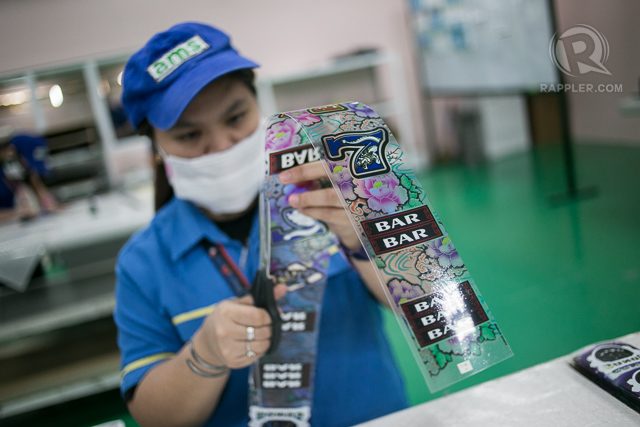
Growing market
With the decline of gambling revenues in Macau and Las Vegas, and the increasing shift to a more family-oriented destination, Usui sees a chance for the Philippines to become a shining light in the gaming industry.
“The Philippines is an ideal place for integrated casino resorts as it’s close to major cities in China, Korea, and Japan. In fact, the Philippine Amusement and Gaming Corporation (PAGCOR) announced a 20% increase in gaming revenue this year,” he said.
Another advantage, Usui said, is that the country can offer something completely different from established locations like Macau and Las Vegas.
“The country offers more choices for players. If they have time to leave Manila, they can enjoy a lot of beautiful beaches that other casino districts simply cannot offer,” he said.
Easy to play
The rise of casino resorts in Manila bodes well for Aruze. Usui said that slot machines will continue to play a pivotal role in this regard.
Ironically, in an industry glamorized for its high stakes nature, it is the game with the lowest stakes that is arguably its most defining feature.
“The biggest reason for its popularity is the low barriers to play. You can spend only P10 ($0.22) on a slot machine, whereas games like blackjack often have minimum bets that run up to P200 ($4.4),” he said.
Slot machines are also the simplest and easiest games available to players.
“With a slot machine, you don’t have the stress of competing with others or constantly calculating odds. You can simply play the machine and hope to get lucky,” he said. – Rappler.com
$1 = P45.35
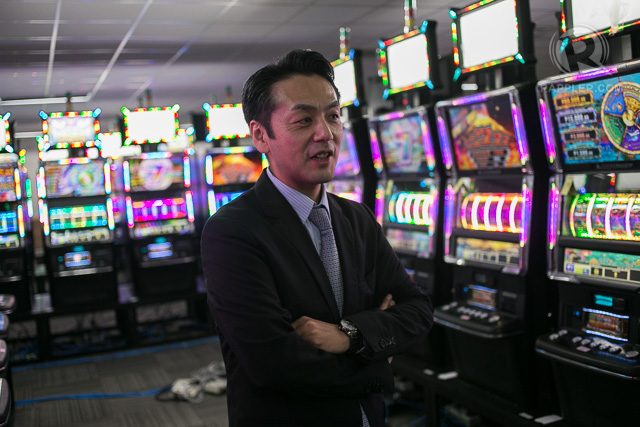


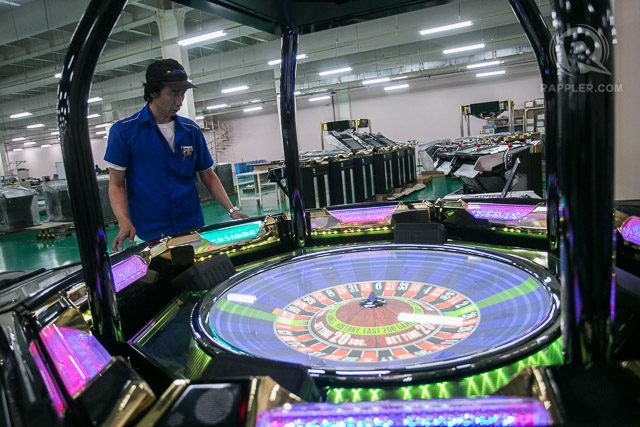
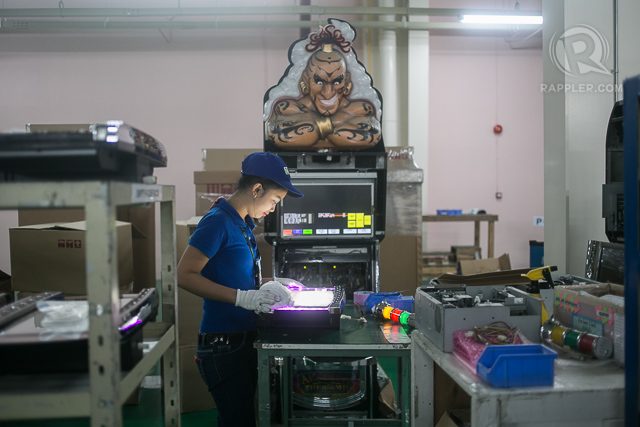

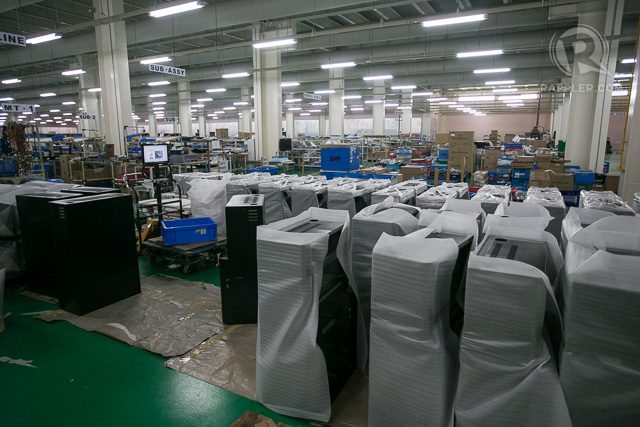
There are no comments yet. Add your comment to start the conversation.